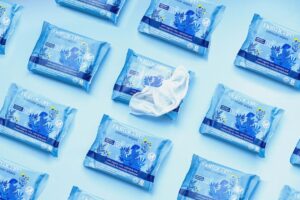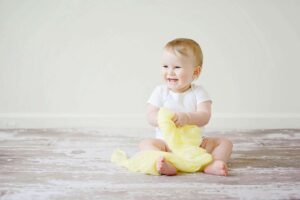Healthy Start

Congratulations on welcoming your little one into the world! As you embark on this incredible journey of parenthood, you’ll quickly discover the seemingly endless world of baby products. But with so many choices available, navigating the aisles can feel overwhelming. For eco-conscious parents seeking gentle and ethical options, cruelty-free baby products offer a compelling alternative. This comprehensive guide will equip you with the knowledge you need to make informed choices for your precious sprout, exploring the benefits, considerations, and key factors impacting cruelty-free baby essentials.
Ethics Meet Effectiveness
The cornerstone of cruelty-free products lies in their commitment to eliminating animal testing during development and production. This resonates deeply with many parents who prioritize ethical practices. But a common concern arises: Do cruelty-free products compromise effectiveness? The answer is a reassuring no. Pioneering cruelty-free brands are constantly innovating, harnessing the power of natural ingredients with scientifically-backed benefits for delicate baby skin.
However, it’s important to acknowledge potential trade-offs. Some natural alternatives might be less readily available or have a shorter shelf life compared to their synthetic counterparts. However, the benefits of natural ingredients often outweigh these considerations. For instance, soothing aloe vera boasts anti-inflammatory properties, while calming calendula helps with diaper rash irritation.
Ultimately, cruelty-free products offer a powerful combination of ethical practices and gentle, yet effective, ingredients for your baby’s well-being.
Understanding Certifications
The world of cruelty-free certifications can feel like a maze. Here’s a breakdown of some of the most trusted certifications you might encounter:
- Leaping Bunny: This globally recognized symbol signifies a company’s commitment to never testing on animals at any stage of product development or production, nor does it allow its products to be tested on animals by a third party. You can learn more about the Leaping Bunny program here.
- PETA Cruelty-Free: This certification from People for the Ethical Treatment of Animals indicates that a company does not conduct or commission animal testing for its products or ingredients. More information about PETA’s cruelty-free program can be found here.
Remember, certifications offer valuable guidance. However, it’s always a good practice to delve deeper and research a brand’s commitment to cruelty-free practices.
Unveiling the Supply Chain
Understanding a brand’s sourcing practices is crucial. While a company might be cruelty-free itself, it could outsource production to companies with less stringent ethical standards. This is where supply chain transparency becomes paramount. Look for brands that are open and transparent about where their ingredients come from and prioritize ethical sourcing throughout their entire production process.
Transparency often goes hand-in-hand with sustainability. Many cruelty-free brands are committed to environmentally friendly practices, using ethically sourced and renewable resources. By choosing such brands, you’re not only prioritizing your baby’s well-being but also contributing to a healthier planet for future generations.
Tailoring Products to Individual Needs
Every baby is a unique masterpiece, and their skin can be even more so. While cruelty-free products generally champion gentle ingredients, some babies might have specific sensitivities. It’s important to remember that even natural ingredients can trigger reactions in some individuals.
Here’s where patch testing comes in. Before introducing any new product, even a cruelty-free one, apply a small amount to your baby’s inner arm and wait 24 hours. Monitor the area for any redness, itching, or irritation. If no reaction occurs, you can proceed with using the product on a larger area.
By being mindful of your baby’s individual needs and conducting patch tests, you can ensure a safe and gentle experience with cruelty-free products.
- Burt’s Bees Baby Shampoo & Wash: Burt’s Bees is well-known for its commitment to natural and cruelty-free products. Their Baby Shampoo & Wash is a gentle, tear-free formula that cleanses and nourishes baby’s delicate skin and hair with natural ingredients like aloe vera and oat flour.
- The Honest Company Baby Lotion: The Honest Company is dedicated to creating safe and effective products for families. Their Baby Lotion is a hypoallergenic, cruelty-free formula made with organic botanicals and nourishing oils like jojoba and olive to keep baby’s skin soft and hydrated.
- Earth Mama Calendula Diaper Balm: Earth Mama offers a range of cruelty-free and organic baby care products. Their Calendula Diaper Balm is a soothing and healing ointment formulated with organic calendula extract and natural plant oils to protect and comfort baby’s delicate skin from diaper rash.
Balancing Budget with Values
There’s no denying that cruelty-free products can sometimes carry a slightly higher price tag. However, it’s important to consider the long-term value proposition. Many cruelty-free brands prioritize sustainable and ethical sourcing, which can translate to higher production costs. Additionally, these brands may use higher-quality, natural ingredients that can be more expensive than their synthetic counterparts.
Ultimately, the decision of how much you’re comfortable spending is a personal one. However, by understanding the reasons behind potentially higher costs, you can make an informed choice that aligns with your values and budget.

Frequently Asked Questions: Demystifying Cruelty-Free Baby Products
Q: Are there any downsides to using cruelty-free baby products?
A: As discussed earlier, some natural ingredients might be less readily available or have a shorter shelf life compared to synthetic ingredients. Additionally, some cruelty-free products may require a bit more research to find trustworthy brands with effective formulations.
Q: Where can I find cruelty-free baby products?
A: Cruelty-free baby products are becoming increasingly available. Here are some options to explore:
- Online retailers: Many online retailers offer a wide selection of cruelty-free baby products. Look for reputable websites with clearly labeled cruelty-free sections.
- Natural and organic grocery stores: These stores often carry a variety of cruelty-free baby products alongside other natural and organic goods.
- Specialty baby stores: Some independent baby stores focus on offering eco-friendly and cruelty-free baby products.
Q: How can I tell if a product is truly cruelty-free?
A: Look for cruelty-free certifications from reputable organizations like Leaping Bunny or PETA. Additionally, you can research a brand’s website or social media pages to see if they have a clear statement about their commitment to cruelty-free practices.
Q: What are some popular cruelty-free baby brands?
A: It’s important to note that new cruelty-free brands are constantly emerging. However, some popular and well-established cruelty-free baby brands include:
- Earth Mama Baby: This brand offers a range of natural and organic baby care products, including diaper creams, lotions, and shampoos.
- Honest Company: Founded by Jessica Alba, The Honest Company features a variety of cruelty-free baby essentials, from wipes and laundry detergent to skincare products.
- Burt’s Bees Baby: A trusted name in natural products, Burt’s Bees Baby offers a gentle line of baby care products formulated with natural ingredients.
Q: Can I make my own cruelty-free baby products?
A: Absolutely! There are many DIY recipes available online for cruelty-free baby products like diaper creams, wipes, and lotions. However, it’s crucial to use high-quality, safe ingredients and ensure proper hygiene during preparation. It’s also important to remember that homemade products might not have the same shelf life as commercially produced ones.
The Final Bloom: Making Informed Choices for Your Little Sprout
Choosing cruelty-free baby products is a powerful way to demonstrate your commitment to ethical practices and a healthy planet. By understanding the key factors impacting these products, from certifications and transparency to individual needs and cost considerations, you can make informed decisions that prioritize both your baby’s well-being and your values. Remember, a happy and healthy baby routine can go hand-in-hand with ethical choices and a commitment to a sustainable future.
We encourage you to share your experiences and questions about cruelty-free baby products in the comments below. By fostering a supportive community of eco-conscious parents, we can empower each other to make the best choices for our little ones and the world around us.




